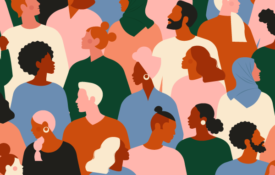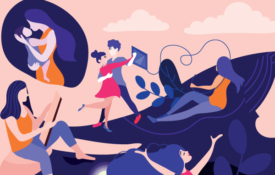-
Exploring The Intersection Of Empathy And Leadership
What makes a good leader? Is it an ability to make difficult decisions that others can’t or don’t want to? Is it being able to relate to the needs and desires of your employees/followers/subordinates so as to maintain good morale among the rank and file and promote productivity? Is it an innate ability to connect emotionally with others? ...
-
Understanding the Outrage Over Altering Holiday Celebrations Despite COVID-19 Risks
APS Member/Author: Juliana Schroeder With the holidays fast approaching and COVID-19 cases and deaths reaching new highs, some U.S. officials are, to limit the spread of COVID-19, urging—or even requiring—that residents alter their typical celebrations. For instance, New York governor Andrew Cuomo issued an executive order that limited residents to a maximum of 10 people over for Thanksgiving dinner, and the Centers for Disease Control and Prevention recommended similar precautions. ...
-
Katy Milkman on How to Nudge People to Accept a COVID-19 Vaccine
THE END OF covid-19 is in sight, as effective vaccines move closer to approval. However, society faces a new crisis: uptake. If too few people agree to get immunised, the value of a vaccine will be limited—and the world could face a situation much like today’s, with many ill and dying, social isolation and withering economies. But behavioural science can help.
-
The Denialist Playbook
Once upon a time, in a land not far away, there was a horrible virus that instilled terror in every town and home. Although most people who became infected showed no symptoms or recovered within a week, in a small fraction of cases the illness progressed, causing loss of reflexes and muscle control, paralysis and, sometimes, death. Children were especially vulnerable, so parents watched anxiously for any sign of infection, often keeping them away from swimming pools, movie theaters, bowling alleys, anywhere where there were crowds and the dreaded microbe might lurk.
-

A Psychologist’s View of Racism and Inequality
APS’s Charles Blue speaks with social psychologist and cultural diversity scholar Dr. James Jones of the University of Delaware.
-

Memories of Past Events Retain Remarkable Fidelity Even as We Age
Even though people tend to remember fewer details about past events as time goes by, the details they do remember are retained with remarkable fidelity.

